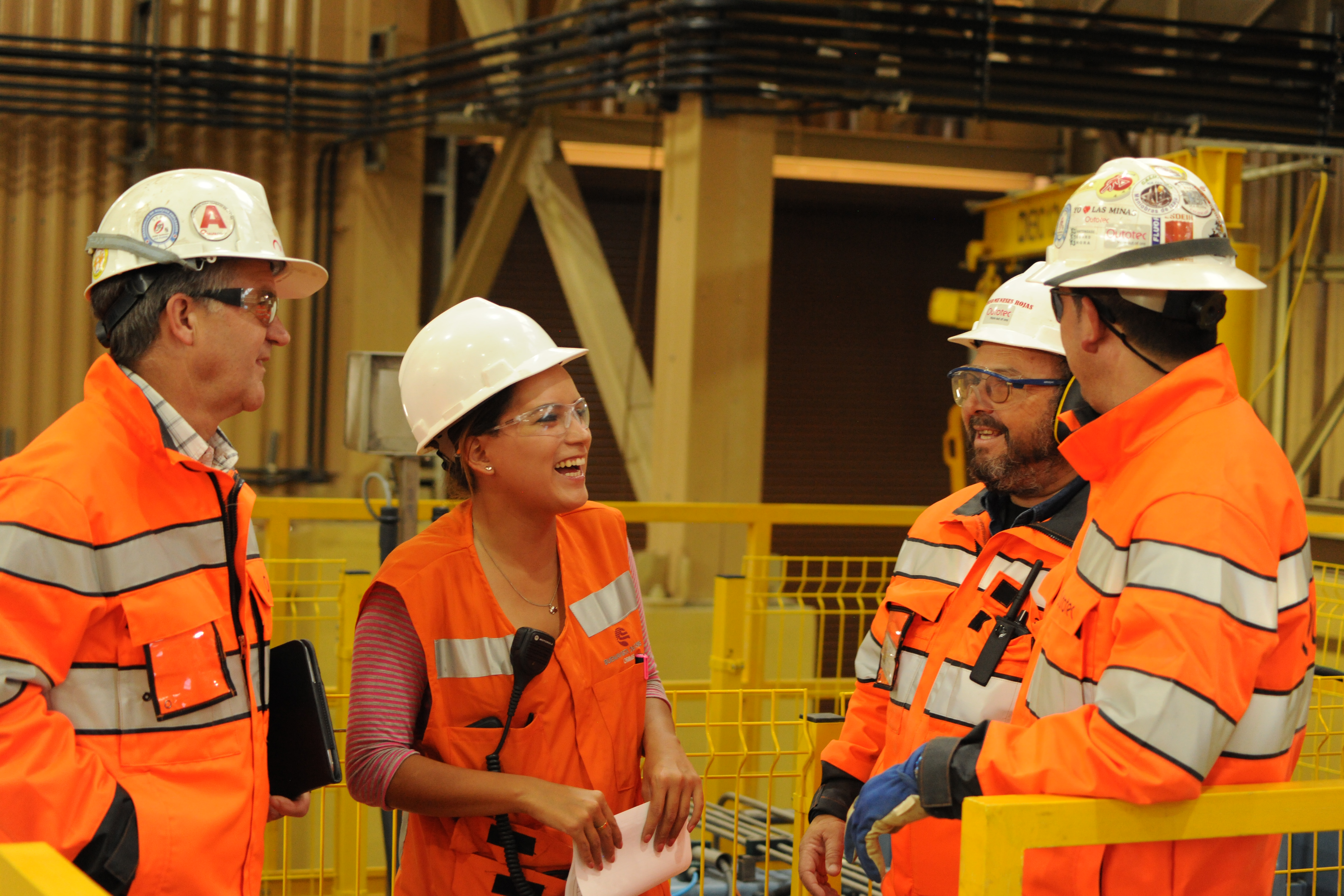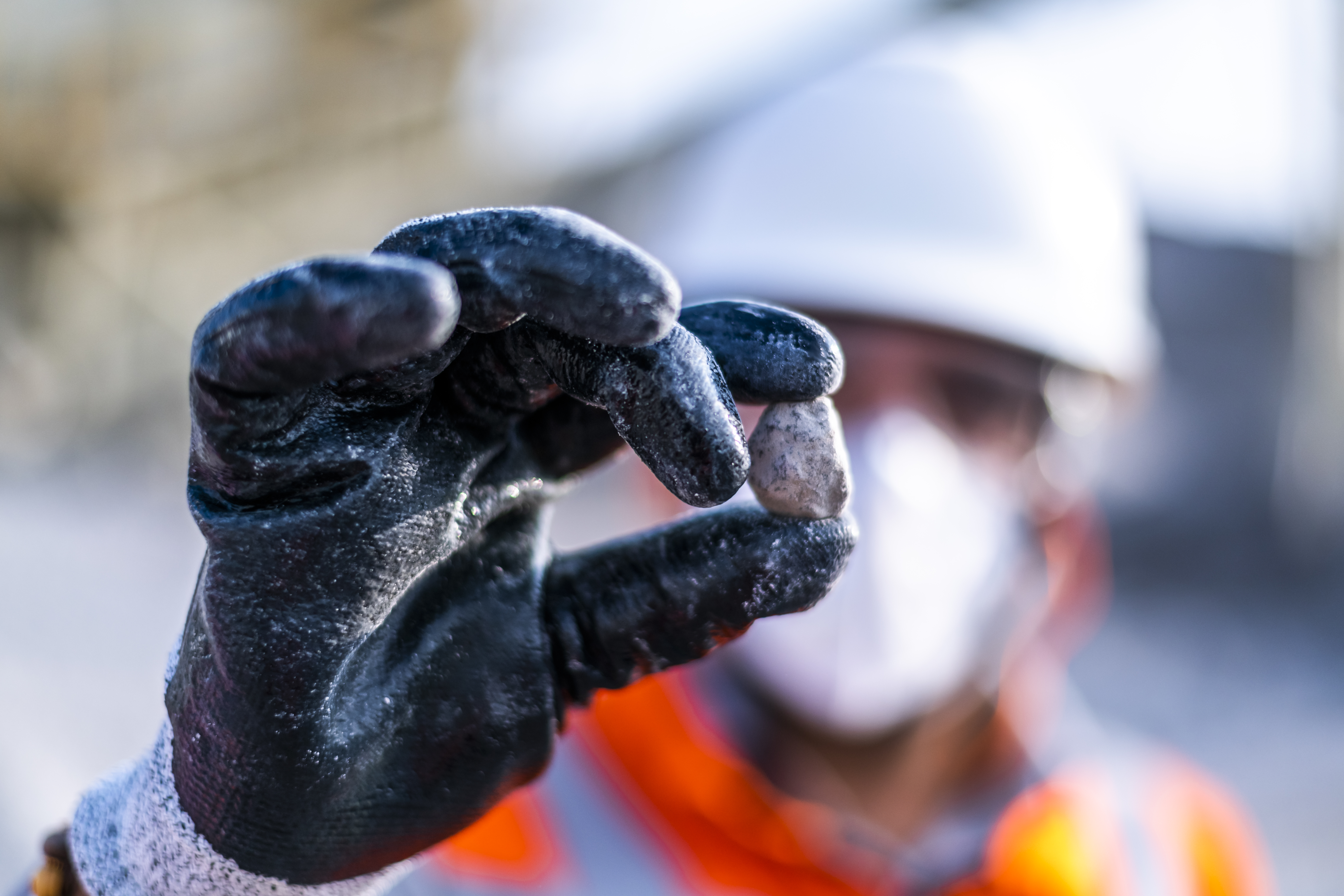Responsible co-operation ensures a sustainable value chain
Suppliers are our valuable partners. We want to be a responsible and trusted partner, so we work closely with our suppliers to ensure a socially, environmentally and economically responsible value chain.
All new suppliers are assessed on sustainability matters, and we consider sustainability essential part of the evaluation process and in line with economic, financial and quality aspects. During supplier onboarding, all new suppliers are required to register and complete a supplier profile. This profile includes a sustainability section with about 30 questions. We also ask our suppliers to agree on Metso Supplier Code of Conduct. If their answers do not meet our minimum requirements (e.g. minimum age, anti-corruption policy, safety practices), we request corrective actions that are then followed up.
Onboarded suppliers are constantly monitored using a third-party screening tool for adverse media, enforcements related to e.g. environmental or labor right violations or sanctions. Supplier sustainability audits are conducted in high-risk countries by both Metso procurement teams and a third-party auditor. Following screenings, specific corrective actions are agreed with suppliers and monitored within the agreed time schedule. Significant aspects that could not be rectified may lead to a supplier potentially being excluded from consideration by Metso.
As part of our ongoing procurement processes, new supplier assessments evaluate all new direct suppliers in high-risk countries against Metso’s sustainability criteria. Based on the assessments of existing and new suppliers, the need for third-party or internal supplier sustainability audits as well as any further actions are determined.
Supplier engagement program
We require our suppliers to demonstrate continuous environmental improvement, such as developing CO2 emissions reduction plans and setting their own CO2 reduction targets. We especially encourage suppliers to commit to the Science Based Targets initiative (SBTi) and climate-related target setting with a target of 30% of the direct procurement spend to be with suppliers who have committed to science-based emissions reductions by 2025.
Metso’s supplier engagement program began in 2020; in 2024, 31.6% of the direct supplier spend was with those committed to SBTi. Some suppliers have highlighted that they are already benefiting from energy consumption reductions and optimization of their operations. The supplier engagement program is therefore mutually beneficial, especially for smaller companies that would not have their own science-based emissions targets programs without Metso’s support.
To support our suppliers in their sustainability commitments and goals, we educate, advise and audit our suppliers’ performance on sustainability. We offer several supplier e-learning courses about our supplier sustainability expectations, human rights, safety, as well as the SBTi setting methodology for CO2 emissions reductions and how our suppliers can contribute to reducing CO2 emissions across the supply chain.


Supplier Code of Conduct
Our Supplier Code of Conduct sets the standards that we expect our suppliers to follow. It is the starting point for any new or existing business relationship, and it covers areas such as health and safety, child and forced labor, human rights, anti-corruption, compliance with laws and regulations, environment and climate change, and more. We expect our suppliers to make every effort to comply with our Supplier Code of Conduct (SCoC).
In 2024, we updated our Supplier Code of Conduct to be aligned with our 2023 published Human Rights Policy, direction, and understanding, including strengthening the message in the health and safety, child labor and non-discrimination sections.
| Supplier Code of Conduct | English |
| Supplier Code of Conduct | Chinese |
| Supplier Code of Conduct | Czech |
| Supplier Code of Conduct | Finnish |
| Supplier Code of Conduct | French |
| Supplier Code of Conduct | German |
| Supplier Code of Conduct | Hindi |
| Supplier Code of Conduct | Korean |
| Supplier Code of Conduct | Portuguese |
| Supplier Code of Conduct | Russian |
| Supplier Code of Conduct | Spanish |
| Supplier Code of Conduct | Swedish |

Supplier audits & development
Supplier sustainability audits are a way to ensure supplier compliance and continuous improvement. Our annual auditing program identifies suppliers to be audited based on a supplier sustainability risk assessment. In 2024, we conducted 179 supplier sustainability audits.
Metso’s third-party audits cover many aspects of sustainability, including safety, environment, product safety, labor and other human rights, and risk management. Prior to the audit, the suppliers are asked to complete an audit sustainability self-assessment in an online portal. Based on the audit findings, we agree on corrective action plans together with the supplier after each sustainability audit. We follow up on the implementation of the corrective actions on the agreed time schedule.
Suppliers: Key performance indicator
Topic | KPI | Long-term goal | Target for 2024 | 2024 | 2023 | Progress |
|---|---|---|---|---|---|---|
| Environmental efficiency in operations | Suppliers’ SBT CO2 emission targets | 30% of procurement spend is with direct suppliers that have a science-based CO2 emission target (SBT) by 2025 | 25% of direct procurement spend is with suppliers that have a science-based CO2 emission target (SBT) | 31.6% | 24.3% | Above target |
